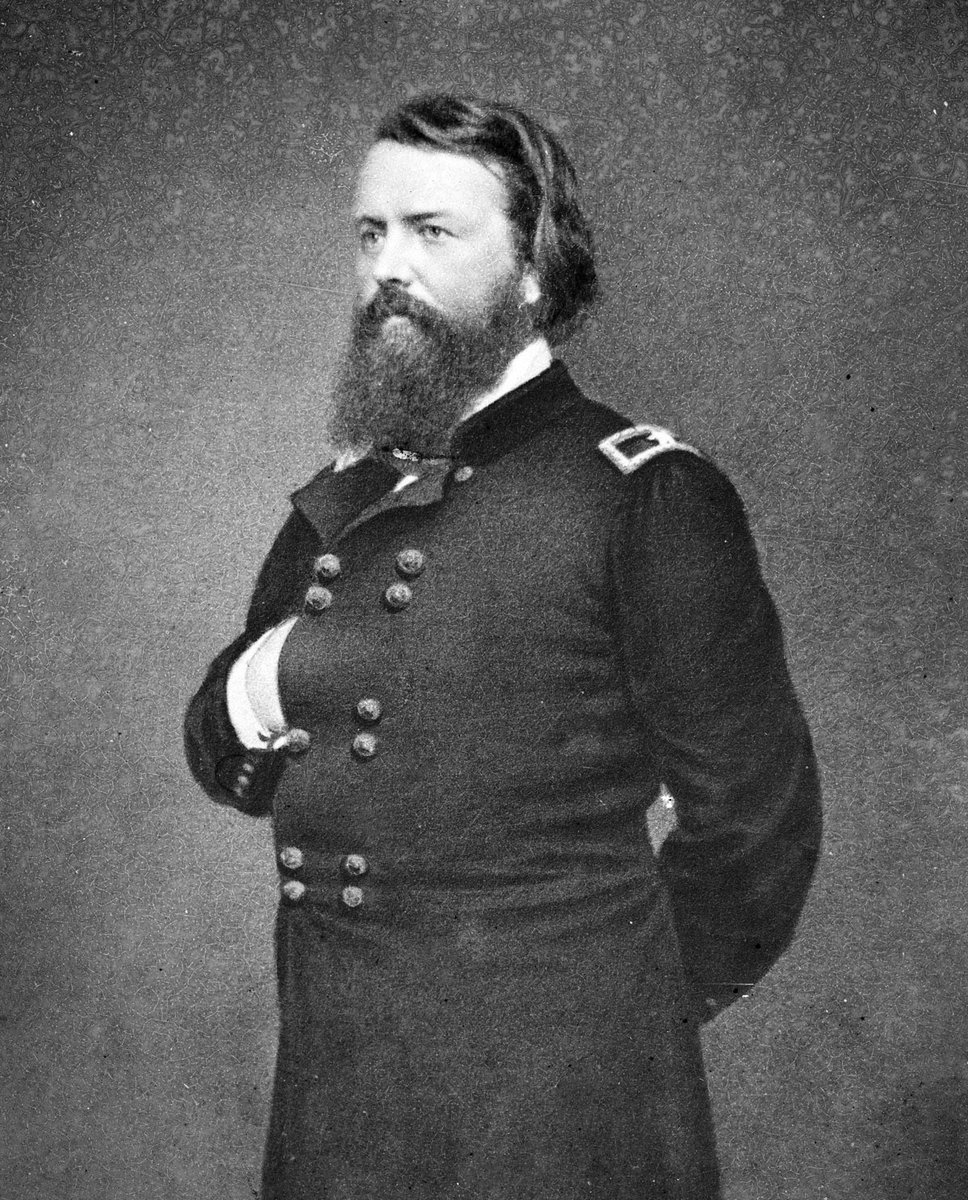Maj.Gen. Winfield Scott, hero of the US-MX War and a Virginian who stayed with the Union, was senior officer of the USA in 1861 but too infirm to take to the field. He advocated economic war, starving the south into submission with a blockade but Lincoln wanted aggressive action. 

Maj.Gen. Irvin McDowell led US forces to embarrassing defeat at the 1st battle of Manassas. Pushed to action against his better judgement, his plan was too complicated for his troops. After a second spanking from Beauregard he was sidelined for the duration of the war. 

Maj.Gen. George B. McClellan was beloved by his soldiers but hated by Lincoln for being too cautious (and a Democrat). Lee thought highly of him, he offered few opportunities to exploit. Never disastrously defeated, Lincoln fires him after he stopped Lee’s invasion of Maryland. 

Maj.Gen. John Pope thought he was hot snot after some easy victories in the western theater. Arrogant and stubborn, unwilling to adapt, Lee thrashed him soundly at 2nd Manassas and he spent the rest of the war slaughtering Indians in the Dakotas. 

Maj.Gen. Ambrose Burnside was promoted for being the least objectionable. He’d fought well and everyone liked good ol’Burn. He did as he was told by Lincoln, went straight at Lee and got his army slaughtered at the Battle of Fredericksburg. He got some of his back at Knoxville. 

Maj.Gen. Joe Hooker, an immoral and arrogant cuss, he backstabbed Burnside to get his job, got it then screw it up. His defeat at Chancellorsville was epic and due largely to his own blind arrogance. He too redeemed himself somewhat as a corps commander in the west. 

Maj.Gen. George Meade, not well liked & often undermined, Meade hardly had a chance. He grabbed a hind leg and hung on at Gettysburg but Lincoln fired generals who defeated Confederate invasions so he was Grant’s glorified chief of staff for the rest of the war. Poor mean ol’ b.. 

Lt.Gen. Ulysses Grant superseded the Spaniard as top dog and contrary to prevailing opinion, I think Grant was a terrible General. He won by persistence and not caring how many men he got killed rather than skill. He lost more men in 3 months than his predecessors in 3 years! 🥃 

Maj.Gen. Henry W. Halleck oversaw Union operations in the west 1861-62 and his forces overall did well. Promoted to general-in-chief for about 18months when he was replaced by a Grant & relegated to chief of staff. “Old Brains” was unassuming, a good organizer & logistics expert. 

Maj.Gen. Don Carlos Buell doesn’t get much respect but I don’t know why. He won the battle of Shiloh, saved Kentucky for the Union at Perryville, so why the hate? He was fussy & cautious but probably suffered more for refusing to harm southern civilians or interfere with slavery. 

Maj.Gen. William S. Rosecrans doesn’t get enough credit. Didn’t help being a Democrat of Dutch ancestry and a Catholic convert. He won 2nd Corinth, pulled it out at Stones River, won a brilliant campaign of maneuvers at Tullahoma but the Chickamauga disaster doomed him. Unfairly. 

Maj.Gen. William T. Sherman was better at burning farms and towns than fighting armies. Unlike most, I’m not a fan. He fumbled at Chattanooga, took a licking at Kennesaw Mt but seems most famous for avoiding Confederate armies than fighting them successfully. 

Maj.Gen. George H. Thomas puts me back in the majority, this southern born loyalist was one of the best. He saved the day more than just as “the Rock of Chickamauga”. At Nashville he won the most crushing Union victory of the war probably (😭). Careful but solid. 

Brig.Gen. Nathaniel Lyon, first US commander of Missouri, helped set the scene for the brutality that followed by his machinations and shooting southern sympathizers. Had an inordinate love of mustard and was KIA at the Battle of Wilson’s Creek. His men lost, the fight. 

Maj.Gen. John C. Frémont isn’t generally highly regarded but I can’t help liking the guy just a little, despite many reasons not too. He was a radical Republican, ardent abolitionist and more smoke than fire in military operations but “the Pathfinder” was a frontier legend. 

Maj.Gen. Samuel R. Curtis was also an ardent abolitionist & this made things difficult. Still, he was a tough geezer who did his job, winning the Battle of Elkhorn Tavern, Arkansas in 1862 & dealing with Price’s great Missouri raid in 1864 winning the biggest battle in the west. 

Maj.Gen. James G. Blunt was an abolitionist who’d allied with fanatics John Brown and Jim Lane. Arrogant, ruthless, not a terrible general but no prize either. He didn’t lose more often than he won. His humiliation by Quantrill’s Raiders was well deserved. 

Maj.Gen. Nathaniel P. Banks led the Army of the Gulf but was frustrated more often than not. His basic ideas weren’t bad but he was outclassed by his rival in west Louisiana. His 1864 Red River campaign was the north’s only really decisive defeat of that year. 

Maj.Gen. E.R.S. Canby was the best General at everything but leading men in battle. He prevented Confederate success in the Southwest in New Mexico but mostly had desk jobs (which he was best at) before replacing Banks in 1864 and taking the surrender of the last Confederate army 

• • •
Missing some Tweet in this thread? You can try to
force a refresh
























